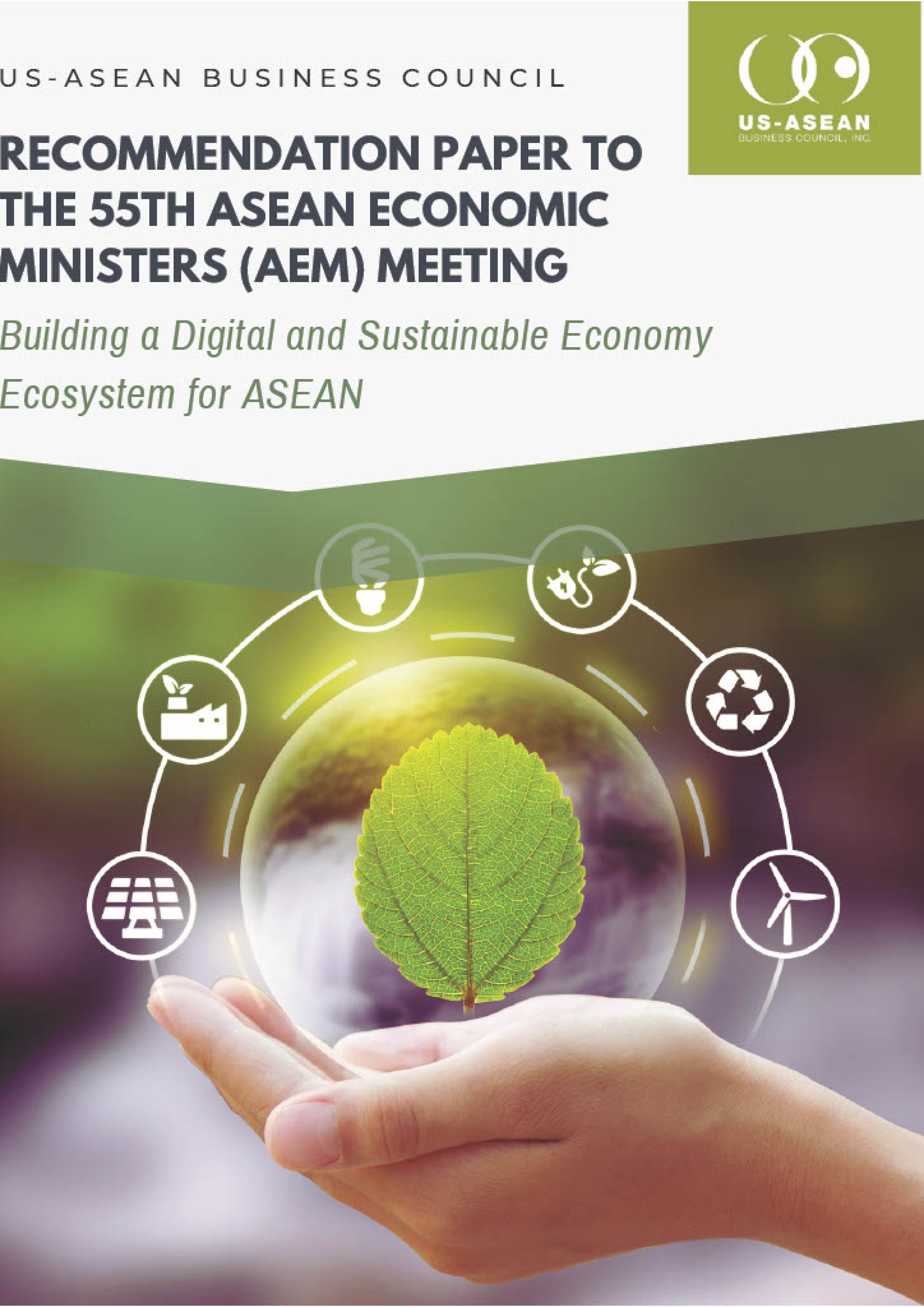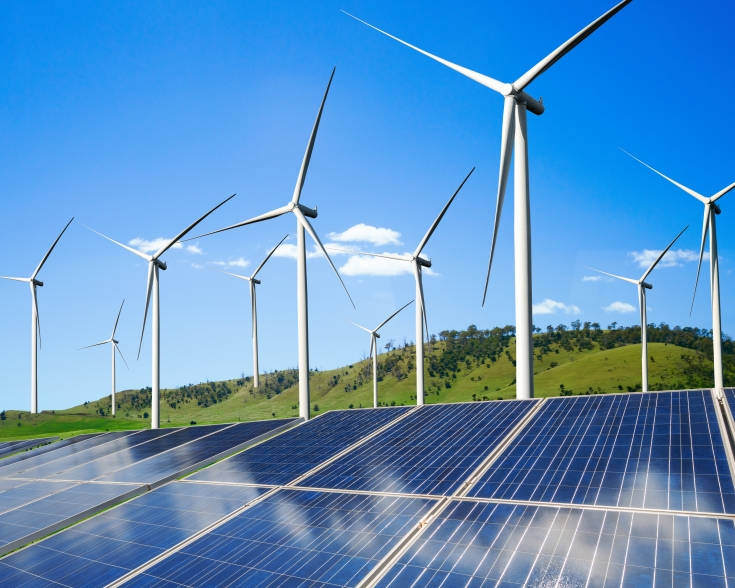
ASEAN’s prominence in the Indo-Pacific continues to take the center stage despite the evolving geopolitical and geoeconomics trends that bring about uncertainty to global economy. Despite post-pandemic recovery, the world continues to grapple with increasing frequency of global shocks resulting from largescale threats from the Russia-Ukraine war, inflation surges, and the lingering dangers of economic downturns. Diverging views on trade policies and their implementation add heavily to these uncertainties, with potentials to trigger significant socio-economic consequences. This calls for coordinated action to counteract the possibilities of disruptions to business continuity.
In line with Indonesia’s ASEAN Chairmanship agenda and priorities, US-ASEAN Business Council and members present this recommendations paper to help ASEAN build digital and sustainable economy ecosystems.
ASEAN Digital Economy Ecosystem. The Council and members believe that an ASEAN Digital Economy Framework Agreement (DEFA) is fundamental to establish high standard rules governing digital economy across the region, including provisions that enable cross-border data flows, promote adoption of digital tools such as cloud, artificial intelligence (AI) and online payments, facilitate e-commerce shipments, promote strong cybersecurity, and advance MSMEs participation. In this regard, a swift conclusion of its negotiation is crucial to ensure the relevance of the agreement with the rapidly evolving digital environment. Key to an effective digital economy ecosystem in ASEAN includes work towards the digitalization of trade processes that could be done in parallel to support DEFA outcomes. With increasing digital transactions across borders, ASEAN governments need to collaborate with industry to promote standards towards building digital trust among the key players, including consumers. It is, therefore, important that ASEAN governments work closely with the private sector to ensure that ASEAN digital economy promotes inclusive growth and economic prosperity for all.
A Sustainable Economy for ASEAN. The Council and members also support the work of ASEAN towards creating a sustainable and circular economy. This could be achieved through close private-public collaborations in advancing a more sustainable supply chain and mobilizing sustainable financing in critical and emerging sectors e.g. transportation and healthcare, among others. In line with ASEAN’s economic priorities, the business community is also ready to support the development of a regional electric vehicle ecosystem, including the development and use of renewable energy. In addition, it is critical for ASEAN governments to take actions with regards to regulating circular economy for plastics and driving sustainable consumer behavior. In the efforts to support circularity of products, the U.S. industry is in particular encouraging ASEAN Member States (AMS) to participate actively in the Basel Convention discussions, which details are enclosed to this paper.




